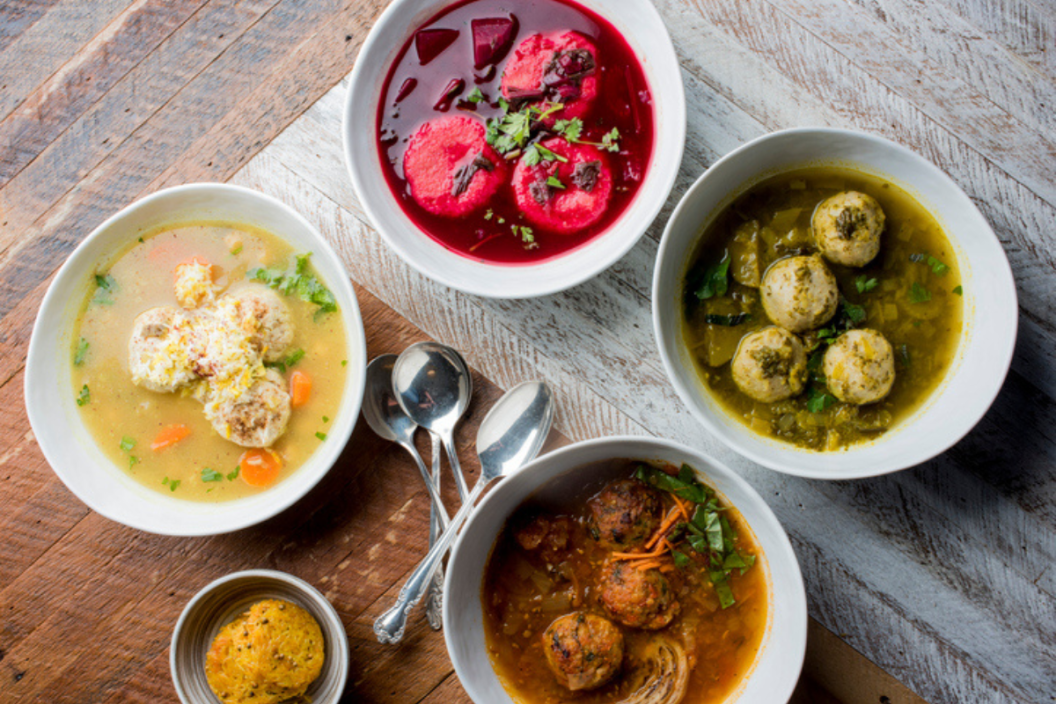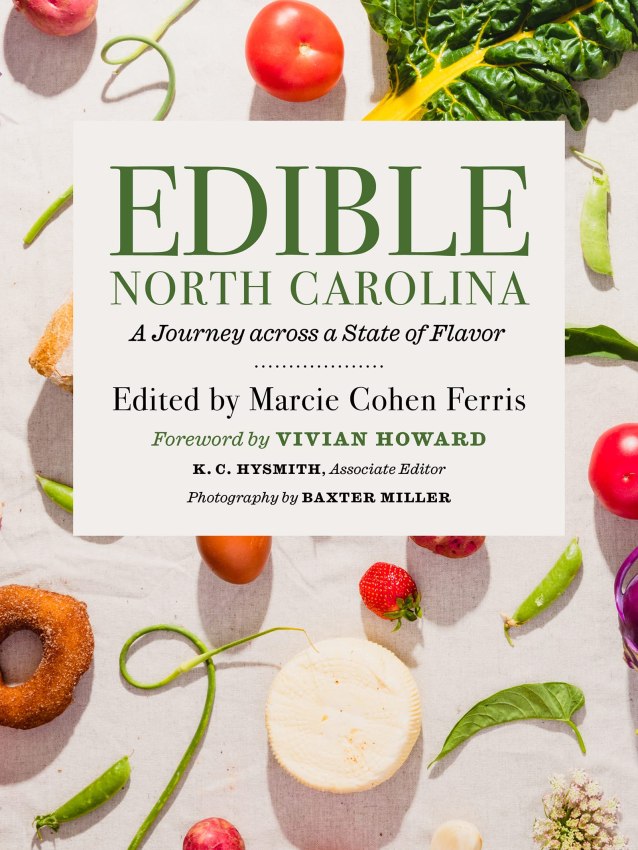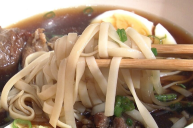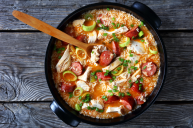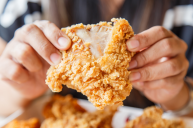The phenomenon of not having a large Jewish community was not unique to me. While places in the East such as New York and Pittsburgh have large established Jewish communities, I've always wondered how Jews like myself found community in the South. I currently reside in Austin, Texas, where the word, "brisket" means barbecue and not the oven-roasted dish usually served on Shabbat. I wanted to dive deeper into the intersection of the Southern Jewish communities and their food. The South is known for several regional styles, like Cajun, Creole, and soul food. But where does traditional Jewish fare fit?
To get some insight and perspective from someone who grew up as a Jewish Southerner, I spoke with Marcie Cohen Ferris, Professor emeritus in the Department of American Studies at the University of North Carolina at Chapel Hill. Marcie has authored two books, The Edible South: The Power of Food and the Making of an American Region and Matzoh Ball Gumbo: Culinary Tales of the Jewish South.
The Culture of Jewish Food in the South
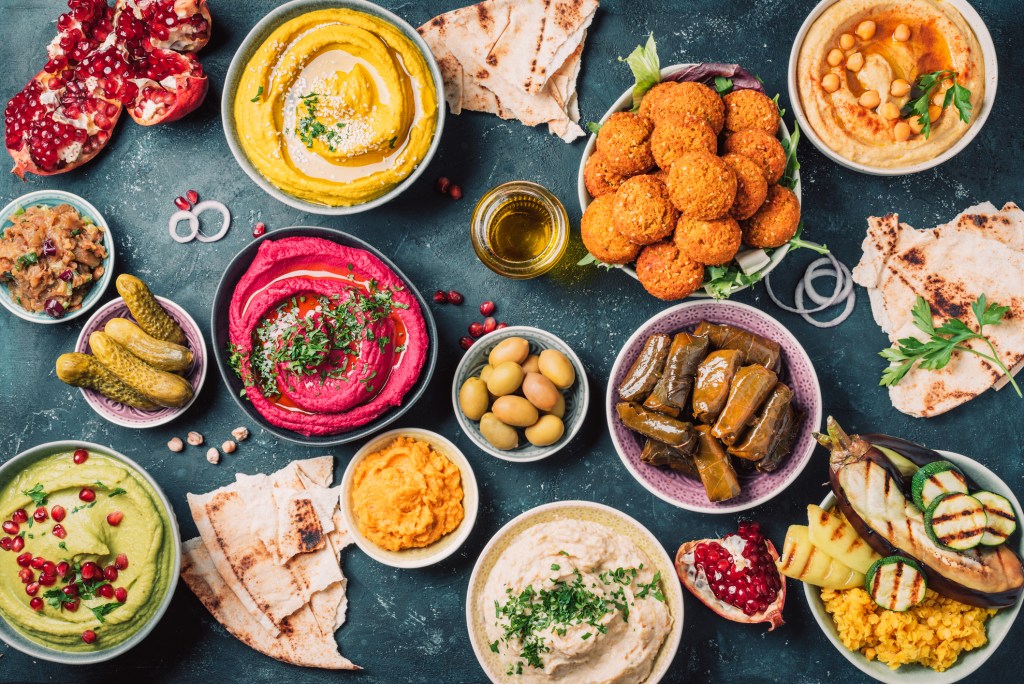
Getty Images
Marcie was born and raised in North Eastern Arkansas with a Jewish mother and a non-Jewish father. Her Jewish mother was born in Connecticut and was a fantastic Jewish food cook, making classics like matzo ball soup and noodle kugel.
Marcie recalled her unique heritage saying, "I think there's a lot of different ways people make sense of who they are as an American. I knew I was from Arkansas, I was southern, and I was Jewish. All of this helped shape my American experience."
She told me, "Southern Jewish food was a way of understanding who we were as Jews from Arkansas, and more largely how I understand being a Jewish Southerner."
Food As Culture
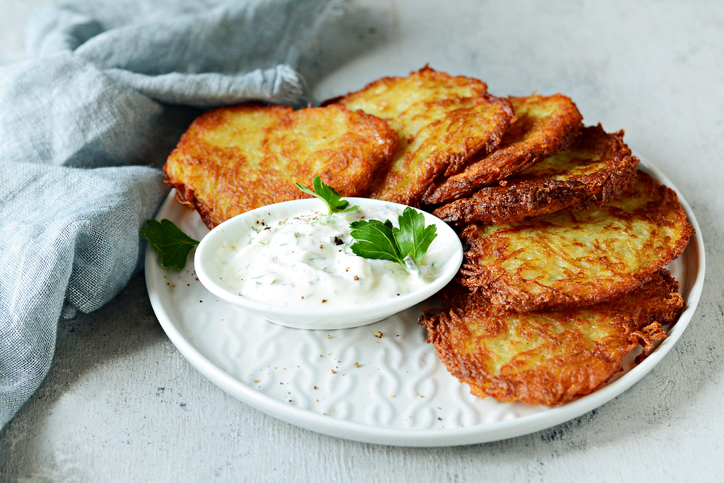
Getty Images
Jews in the South were often considered "integrated outsiders." Marcie described this as, "Food was a tool for understanding....where they were integrated and where they were outsiders. The boundaries were penetrable, and could go in and out."
Some upper-class Jewish families owned slaves and the Jewish women worked alongside them in the kitchen. These women, who wouldn't typically be brought together, were connected through shared recipes and traditions.
Marcie talked about the unique spin Jewish southerners put on classic Jewish holiday foods. Instead of a traditional brisket, Jewish southerners barbecue it with sweetened barbecue sauce. This leads to a stronger BBQ with a smoky flavor.
In North Carolina, pecans and sweet potatoes are staple ingredients. It's not surprising to find a batch of sweet potato latkes on the table during Hanukkah. Pecans are also added to traditional sweet noodle kugel.
Mother's Southern Blueberry Jam Cake
Marcie spoke most fondly about her mother's southern blueberry jam cake. The jam cake is not necessarily "Jewish," but it is a Southern staple. Her mother made this cake for Jewish High Holidays, in place of the more traditional honey cake. Jam cake has its roots in the Appalachian south and Marcie's mother got the recipe from her non-Jewish Southern friend.
What I found so remarkable was the way to bring two cultures together and create something new. The blackberry jam cake became a "Jewish cake" in Marcie's household because of the times in which it was served. It stood as the celebration cake for one of the most sacred Jewish holidays, the New Year.
Edible North Carolina: A Journey across a State of Flavor by Marcie Cohen Ferris
Marcie's new book, Edible North Carolina, "Documents and shares the vibrant voices and places of North Carolina's contemporary food movement—an exciting intersection of culinary excellence, creative entrepreneurship, changing populations, historic yet evolving foodways, and a commitment to protect and sustain food resources for generations to come."
Her collection of essays will be available to purchase on May 3, 2022.
READ: Everything to Know About Kosher Wine and Which Brands to Try
